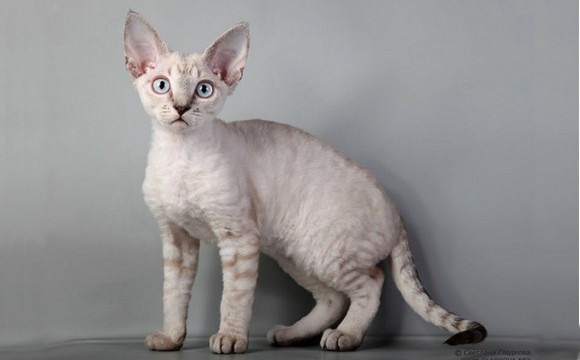The Devon Rex cat breed is renowned for its unique appearance, affectionate nature, and playful personality. Originating from Devonshire, England, this breed has captivated cat enthusiasts worldwide. This comprehensive guide will cover the breed’s history, physical characteristics, personality traits, care requirements, and suitability as a pet, ensuring you have all the information needed to appreciate and care for a Devon Rex cat.
History of the Devon Rex
The Devon Rex cat breed traces its origins back to 1960 in Devonshire, England. The first known Devon Rex was discovered by cat fancier Beryl Cox near an abandoned tin mine. This feral, curly-coated tom mated with a straight-coated calico female, producing a litter of kittens. Among these kittens was Kirlee, a brownish-black male with a distinctive curly coat. Initially thought to be related to the Cornish Rex, further breeding efforts revealed that the Devon Rex was a separate breed. The Devon Rex was imported to the United States in 1968, and various cat associations began recognizing the breed in the following years.
Physical Characteristics
The Devon Rex is often described as having an otherworldly appearance, with large, bat-like ears, prominent cheekbones, and wide-set, expressive eyes. These cats are medium-sized, with a muscular build and a distinctive wavy or curly coat. Unlike the Cornish Rex, the Devon Rex has all three types of hair: guard, awn, and down. However, the guard hairs are often fragile and stunted, leading to the breed’s signature curly coat.
- Ears: Large and set low on the head
- Eyes: Large, oval-shaped, and wide-set
- Body: Slender yet muscular
- Coat: Soft, wavy, or curly, with varying lengths
Personality and Temperament
Devon Rex cats are known for their playful, affectionate, and curious nature. They form strong bonds with their human companions and are often described as dog-like in their loyalty and devotion. These cats thrive on interaction and love being involved in their owners’ activities.
- Affectionate: Devons are highly affectionate and enjoy cuddling.
- Playful: They have a playful and energetic disposition.
- Intelligent: These cats are smart and can be trained to perform tricks.
- Curious: Devons are naturally curious and enjoy exploring their environment.
Care and Grooming
Despite their unique coat, Devon Rex cats require minimal grooming. Their delicate fur can be maintained with regular gentle brushing, and they often enjoy being petted and stroked by their owners. However, due to the fragility of their fur, it’s important to avoid over-grooming.
- Brushing: Use a soft brush to gently groom their coat.
- Bathing: Occasional baths can help keep their skin and coat healthy.
- Ear Cleaning: Regularly check and clean their ears to prevent infections.
- Diet: A balanced diet is essential to maintain their overall health.
Health Considerations
The Devon Rex breed is generally healthy, but like all breeds, they can be prone to certain genetic conditions. Regular veterinary check-ups and a healthy diet can help ensure your Devon Rex remains in good health.
- Patellar Luxation: A common issue where the kneecap dislocates.
- Hypertrophic Cardiomyopathy (HCM): A heart condition that can affect some Devons.
- Skin Conditions: Due to their delicate coat, they may be prone to skin issues.
Devon Rex as a Pet
Devon Rex cats make excellent pets for families and individuals alike. Their affectionate nature, playful behavior, and low-shedding coat make them a popular choice for cat lovers. They are particularly well-suited to indoor living and enjoy being the center of attention in their households.
- Family-Friendly: Devons are good with children and other pets.
- Apartment-Friendly: Their small size and playful nature make them ideal for apartment living.
- Companionship: They thrive on human interaction and make loyal companions.
Conclusion
The Devon Rex cat breed is a delightful and unique addition to any home. Their captivating appearance, loving personality, and low-maintenance grooming needs make them a perfect choice for cat enthusiasts. Whether you’re seeking a playful companion or a loyal lap cat, the Devon Rex is sure to steal your heart. If you’re considering adding a Devon Rex to your family, ensure you provide plenty of love, attention, and care to keep your feline friend happy and healthy.
By understanding the history, characteristics, and care requirements of the Devon Rex, you’ll be well-equipped to provide a loving and nurturing environment for your new feline companion.

